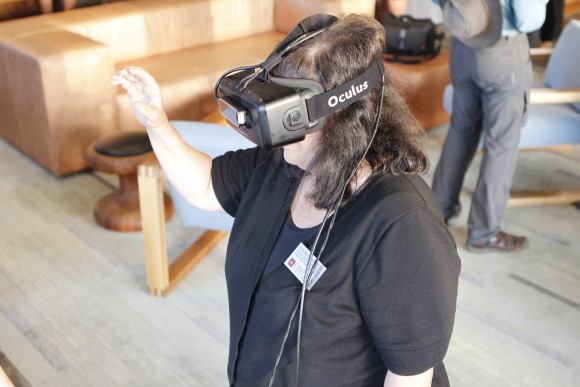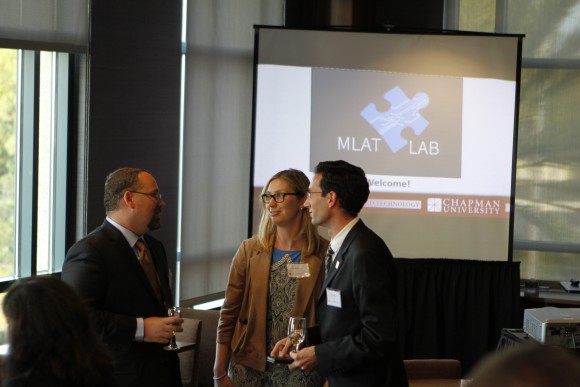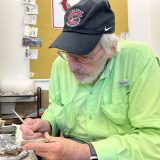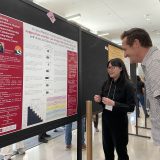Machine Learning & Assistive Technology (MLAT) Lab Opens With Reception After opening in January, Faculty, Staff, Students and Donors join for presentation and celebration
October 1, 2015

Chapman University’s Machine Learning & Assistive Technology (MLAT) Lab was only just founded in January of 2015, but the work coming out of it is already proving to be not just useful, but important. The goal, ultimately, of the MLAT Lab has been to provide a formal organization for researchers at Chapman who are dedicated to using technology to help understand and treat developmental disorders.
During an intimate reception early in September, faculty members, students and guests all joined to see some of the great work being done by the MLAT Lab, which was highlighted by Dr. Erik Linstead. “The goal of the MLAT lab is to reshape the research landscape of machine learning and assistive technologies in the understanding and treatment of Autism Spectrum Disorder,” says Dr. Linstead. “It was a pleasure to spend an evening celebrating with colleagues, students, and friends of the university who share this vision and have supported MLAT since its inception early this year.”

His twenty-minute presentation highlighted the cutting-edge science that’s coming out of Schmid College and emphasized the uniqueness of MLAT, which had students building complex data charting software, phone apps, and even some virtual reality programs through Oculus Rift. The reception also featured several of the students who worked alongside Dr. Linstead, there to talk and show off some of the technology. Among them was former undergraduate and current doctoral student David Tyler, who helped early on in the development of MLAT including the designing of an Autism Management Platform (AMP). “MLAT is a perfect example of the interdisciplinary collaboration that happens every day at Chapman,” said David. “We work together with everyone from doctors to graphic designers, all of whom share a common goal of improving lives in any way possible.”
Be sure to check out more about the
Machine Learning & Assistive Technology Labs here
, and expect bigger and better news coming as the labs become more established.


